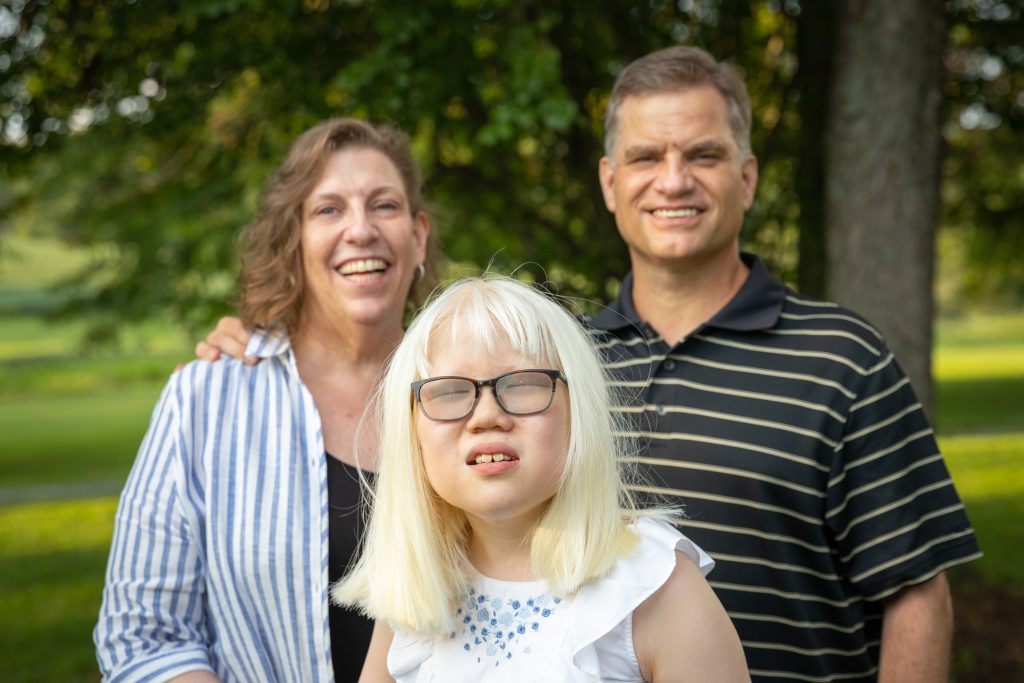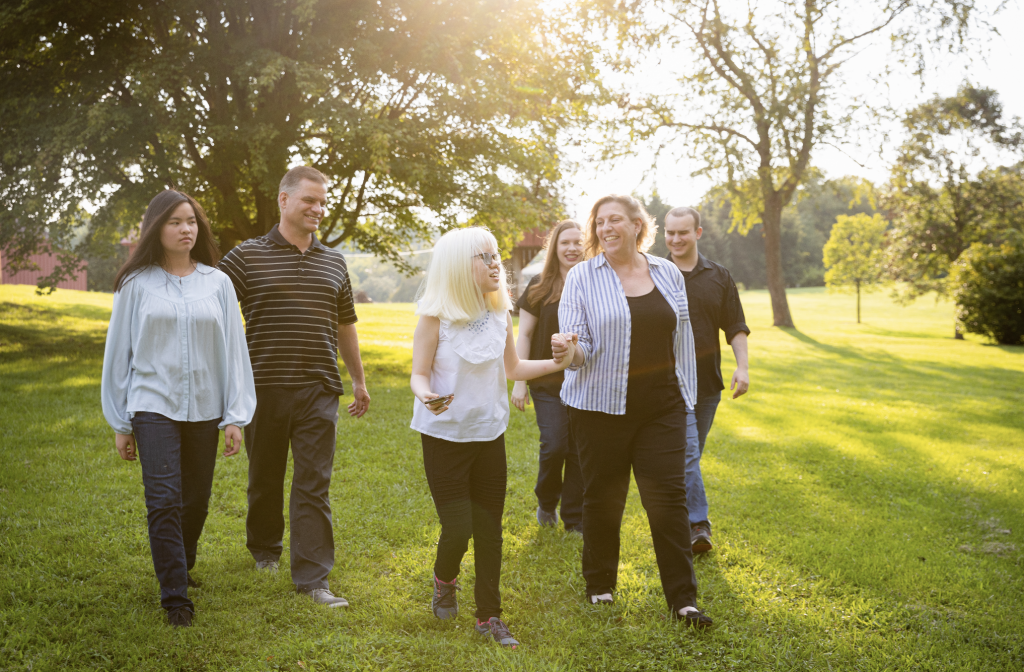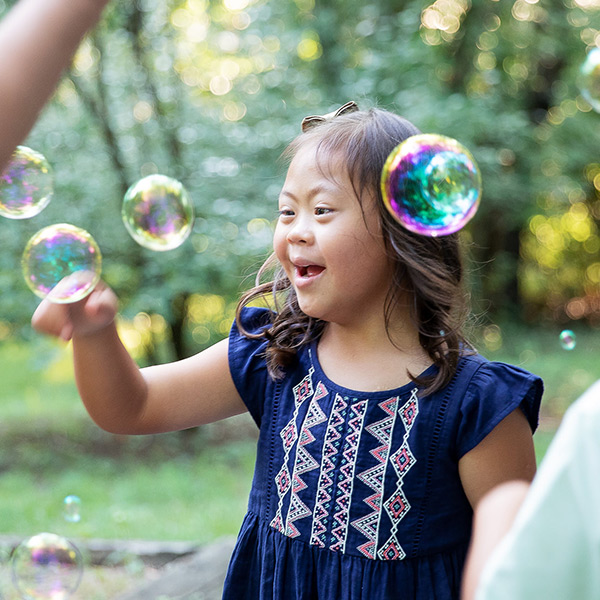Helping Cate SEE

Peggy and Bruce Wiley’s adoption story didn’t begin how you may imagine. It started with a car accident.
Back in 1989, Peggy was rear-ended by a drunk driver. Her recovery was long and difficult. She wasn’t able to do a lot, but she could teach Sunday school.
“One of the girls in that class asked me why China only allowed one child [per family],” Peggy shared. “I said I didn’t know, but I would look into it and get back to her the next week—that’s when and where the door got opened, and we were made aware.”
As Peggy learned more about children and the orphan needs in China, God grew in her the desire to adopt. Around that time, Peggy and Bruce were dating and talking about marriage.
“By that point, I had a contingency requirement that whoever I was going to marry would also like to adopt from China in particular,” Peggy said.
While Bruce had never before considered adoption from China, he was moved by the information Peggy shared and agreed adoption should be a part of growing their family.
God didn’t have the Wileys jump into adoption right away, though. They started saving financially and gave birth to their first daughter, Cara, four years after getting married. When Cara was around 9 years old, they adopted Emma, and a few years after that, the Wileys adopted Cate—both from China.
For both adoptions, the Wileys received Show Hope Adoption Aid grants.
“It was great. You know, you jump into something like that, and you’re not entirely sure how much everything is going to be,” Bruce said. “And it’s just sticker-shock, the whole way through.”
Adoption can be expensive, but unforeseeable events after adoption can often cost even more, especially when medical needs arise.
The Wileys’ third daughter was born with albinism, a genetic disorder that results in little to no production of the pigment melanin, causing the skin, hair, or eyes to have little or no color and is also associated with vision problems.
When the Wileys brought Cate home, she was 2 years old but showed few signs of development—she could not roll over, sit up, or lift her head. Today, Cate lives with 11 special needs, and her medical expenses are far greater than the Wileys ever anticipated.
“Everything changes financially when you say, ‘I’m gonna commit to this, to being this child’s parent, and to doing everything you possibly can for this child,’” Peggy said. “So that has been kind of a juggling game for us—to make sure we’re addressing Cate’s enormous needs in a way that does not neglect the needs of other family members.”
Nine years after coming home, Cate has made amazing strides, but many medical needs remain. One of her most significant needs is her low vision. One doctor, who works with visually impaired children, suggested that Cate should receive institutionalized care at a school for individuals who are blind, Mondays through Fridays with weekends at home.
The school was equipped with a video magnifier that helps children like Cate identify and learn objects and words—which would vastly improve her ability to understand and communicate with the world around her. The machine costs approximately $4,000.
For Peggy and Bruce, having Cate live apart from them was not an option. After the years Cate spent living without the permanency of a family in China, what she needed most was to stay within the safety and security of their family.
Instead, the Wileys applied for and were awarded a Show Hope Medical Care grant which allowed them to purchase a video magnifier of their own.
“It’s opened the world for her that she wouldn’t have been able to experience,” Peggy said.

“This [grant] really changes the life of the child and the entire family—whether a piece of equipment, or surgery, or the medicine that can be so expensive,” Peggy continued. “It changes the entire family’s way of life, not just for the child but every other kid in the family too.”
For Peggy and Bruce, the Medical Care grant from Show Hope was an extraordinary blessing, allowing their daughter to SEE like never before. It was also a reminder that there are other children and families who are experiencing what they are, giving them a sense of community and hope.
“Our story is truly a blessed story,” Bruce said. “I wouldn’t change [it]. I wouldn’t. I can’t even imagine life without Cate. She’s such a blessing to us. We have great joy in our little girl, and we feel the great honor of all God has entrusted to us.”
The Wileys want to encourage the body of Christ to dig deep when it comes to the needs of orphans and rally around those walking through adoption and medical needs, but more than that, they covet prayers.
“We are very thankful for partners and helpers like Show Hope. Receiving this grant has been such a help to our family, and we are truly blessed that so many have chosen to support and partner with us in our calling,” Peggy said. “And our church is providing for Cate through prayer as well. They keep us in prayer all the time, and that is as important to us as financial contributions.”
At Show Hope, the greatest gift one could share or avenue of support to take is that of prayer. This is something we do not take lightly. We stand firm on and are committed to the truth that prayer is, in fact, essential in our work and in our relationship to the Father.


